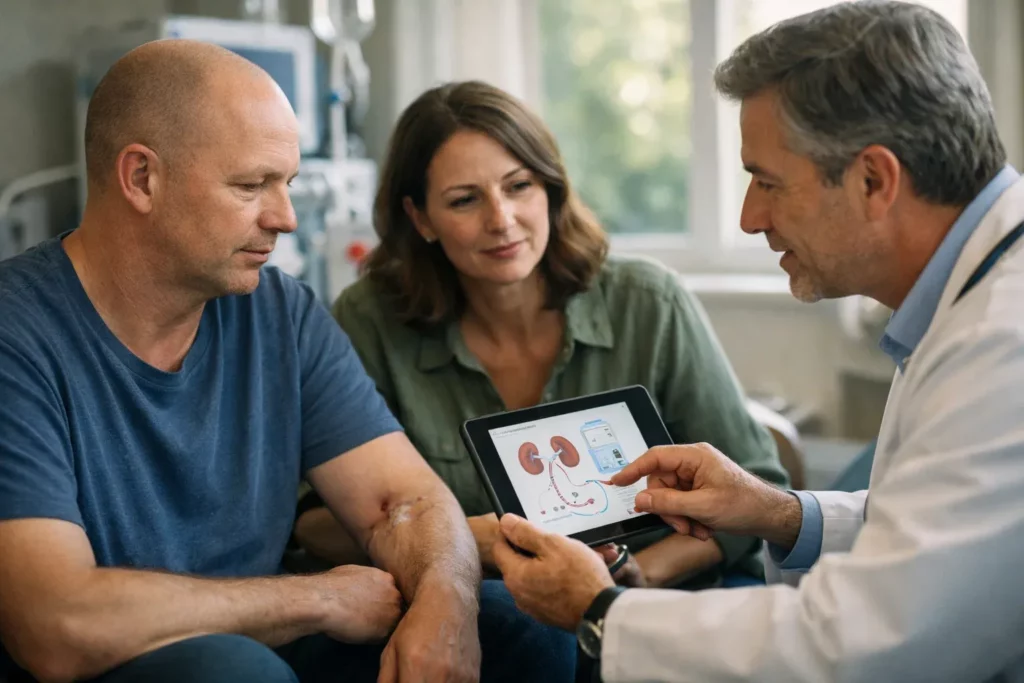When people think of kidney disease, they often picture older adults facing chronic health issues. But kidney disease can (and does!) affect kids and teens. We recently spoke with ANC’s Dr. Walz, who specializes in pediatric nephrology, to explore how kidney care in kids is evolving and why early awareness is crucial.
Emerging Trends in Pediatric Nephrology
In children, kidney disease is usually caused by congenital issues, autoimmune conditions, or infections. But a more surprising trend is emerging: teens developing essential hypertension – the same kind of high blood pressure more commonly seen in adults.
“Historically, only about 5% of hypertension in kids was considered essential,” Dr. Walz shared. “Now we’re seeing more teens with true essential hypertension due to lifestyle factors like inactivity and poor diet.” This shift signals a growing need to address kidney health earlier and more proactively.
What Signs Should You Look Out For?
Kidney disease in kids doesn’t always come with obvious symptoms; however, there are a couple to keep your eyes peeled for. The most common red flags Dr Walz shared are blood in the urine (hematuria) and protein in the urine (proteinuria).
Often, these are caught during routine physicals or sports screenings. “Kids aren’t always going to tell you something feels off, so regular check-ups are crucial,” Dr. Walz notes. Teens may also develop orthostatic proteinuria, a typically benign condition where protein leaks into the urine when standing but not while lying down. If your child experiences similar symptoms, a consultation with their primary care provider can determine whether a nephrology referral may be necessary.
How to Support Young Patients
It’s no surprise that managing kidney disease as a young person comes with unique challenges. That’s why our team’s philosophy is to find ways to empower young patients as they progress in their care, helping them gradually take ownership of their health as they transition into adulthood.
What are some ways to practice this?
For starters, parents can help by encouraging healthy habits, attending routine appointments, and fostering open communication. Many of the lifestyle recommendations to aid kidney health contribute to overall wellness. Staying active, limiting processed foods, and staying hydrated go a long way for kids and adults alike. Make sure they know so!
When it comes to kidney health, starting early makes all the difference, and at ANC, we’re here to support families at every stage. If this article resonated with you, we urge you to share it with friends and family to spread awareness on the impact of healthy lifestyle practices among youth to mitigate the risks of pediatric kidney disease.






